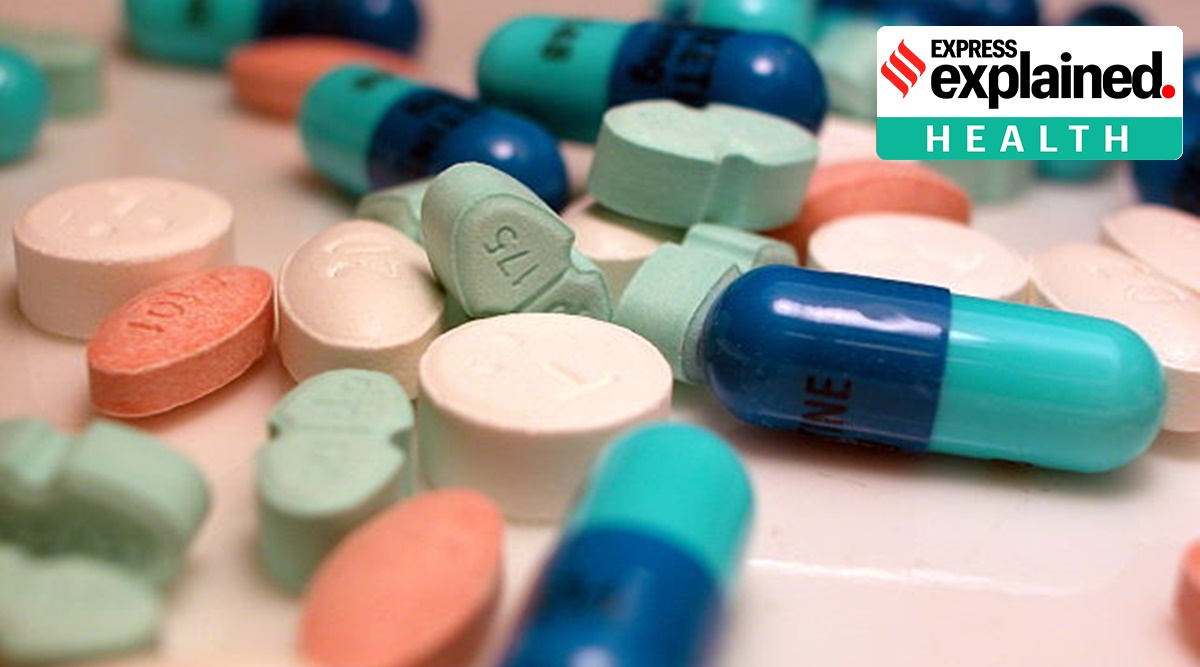Revised manufacturing rules for drug firms: what changes, and why | Explained News
The government recently directed all pharmaceutical companies in the country to implement the revised Good Manufacturing Practices (GMP), bringing their processes at par with global standards. Larger companies with a turnover of over Rs 250 crore have been asked to implement the changes within six months, while medium and small-scale enterprises with turnover of less than Rs 250 crore have been asked to do so within a year.
This comes at a time when India is promoting itself as the global manufacturing hub for generic medicines.
One, implementation of the new norms will bring the Indian industry on par with global standards.
Two, there have been a string of incidents where other countries have reported alleged contamination in India-manufactured syrups, eye-drops, and eye ointments. The deaths of 70 children in the Gambia, 18 children in Uzbekistan, three persons in the United States, and six deaths in the Cameroon have been linked to these products.
Three, a risk-based inspection of 162 manufacturing units by the government found several deficiencies — incoming raw materials not being tested before use, product quality not being reviewed , absence of quality failure investigation, infrastructure deficiency to prevent cross-contamination, faulty design of manufacturing and testing areas, missing qualified professionals, and poor documentation.
This is also important seeing only 2,000 of the 10,500 drug manufacturing units in the country at present meet global standards, being WHO-GMP certified.
The improved standards will ensure that pharmaceutical companies follow standard processes, quality control measures, and do not cut corners, improving quality of medicines available in India as well as sold in global market.
In fact, implementation of the revised good manufacturing practices (GMP) as listed in the 2018 draft schedule M of the drugs and cosmetics rules was one of the measures suggested during a Chitan Shivir after the string of incidents. The stakeholders had also suggested creating a country-wide IT platform that can bring in uniformity across states on processes followed for licensing and inspection, among others, ensuring that the quality of medicine manufactured anywhere in the country would be the same.
What are the major changes?
The revised GMP guidelines focus on quality control measures, proper documentation, and IT backing to maintain quality of medicines produced.
The new guideline introduces pharmaceutical quality system, quality risk management, product quality review, and validation of equipment. This will mean companies will have to carry out regular quality reviews of all its products, verify consistency of the quality and the processes, thorough investigation of any deviation or suspected defect, and implementation of any preventive actions. It also suggests a change control system to evaluate all changes that may affect the production or quality of the product.
As per experts in drug regulation, while some of these processes were followed, they weren’t properly documented as needed by global regulators. “Without proper documentation, no regulator would agree that the steps were taken. The new guideline seeks to improve this,” an official said.
The companies will also have to carry out stability studies as per the climate conditions. “Most companies at present keep their samples stored under recommended conditions and test for various parameters from time to time. Now, they will be needed to mandatorily maintain the drugs in a stability chamber, set the proper temperature and humidity, and carry out an accelerated stability test as well.”
The guidelines also state that companies should have GMP-related computerised systems, which ensure that there is no tampering of data related to the processes. Such GMP systems will prevent unauthorised access and changes to the data. There will also be controls against omission of data. In case sensitive data is entered manually to the system, there will be additional checks to validate the accuracy of the data. Backups would also be created to ensure there is no loss of data.
“These computer programmes will be designed to automatically record all the steps followed and checks done, which will ensure all the processes are followed to the T and there is no tampering,” said an expert.
In addition, the new schedule M also lists out the requirements for additional types of products, including biological products, agents with radioactive ingredients, or plant-derived products. The new schedule also lists the requirement for investigational products being manufactured for clinical trials.
How will the changes help?
Instituting the same quality across the industry will give confidence to regulators from other countries, said an expert.
In addition, it will improve the quality of drugs in the domestic markets. Most of the 8,500 manufacturing units that are not WHO-GMP certified supply medicine within India.
“This is a very welcome step by the government as it will ensure that all the manufacturing units in the country are at par with global standards, reducing the need for repeated inspections by different regulators. It will make India a quality pharmaceutical hub of the world. In addition, it will ensure that our citizens also receive export-quality medicines,” said Narender Ahooja, former drug controller of Haryana.
When will the changes be implemented?
Union health minister Mansukh Mandaviya said implementation would begin August 1 onwards, meaning the bigger companies will now have six months and smaller companies a year to implement the changes.
The new schedule M, however, is yet to be notified, say experts.
A drug manufacturer said: “Initially when the draft guidelines were released, the industry said that at least 36 months would be needed to make the necessary changes. The deadline of one year might get extended. However, it is the smaller companies who have to make drastic changes, most bigger companies in India already follow the global GMP.”
To help such companies, the department of pharmaceuticals also has a scheme to provide credit-linked capital and interest subsidy for upgradation of MSME units.
No Byline Policy
Editorial Guidelines
Corrections Policy
Source
